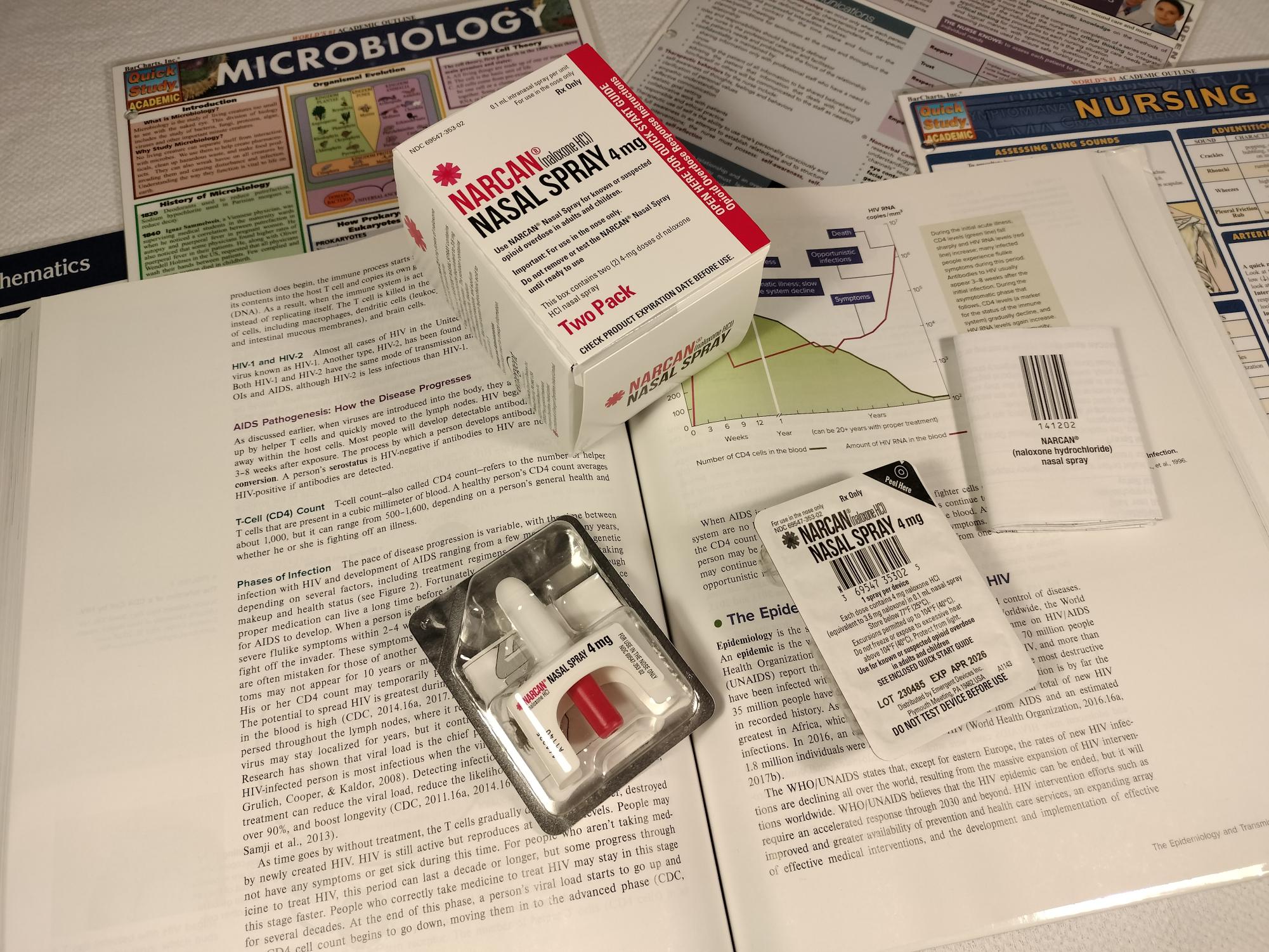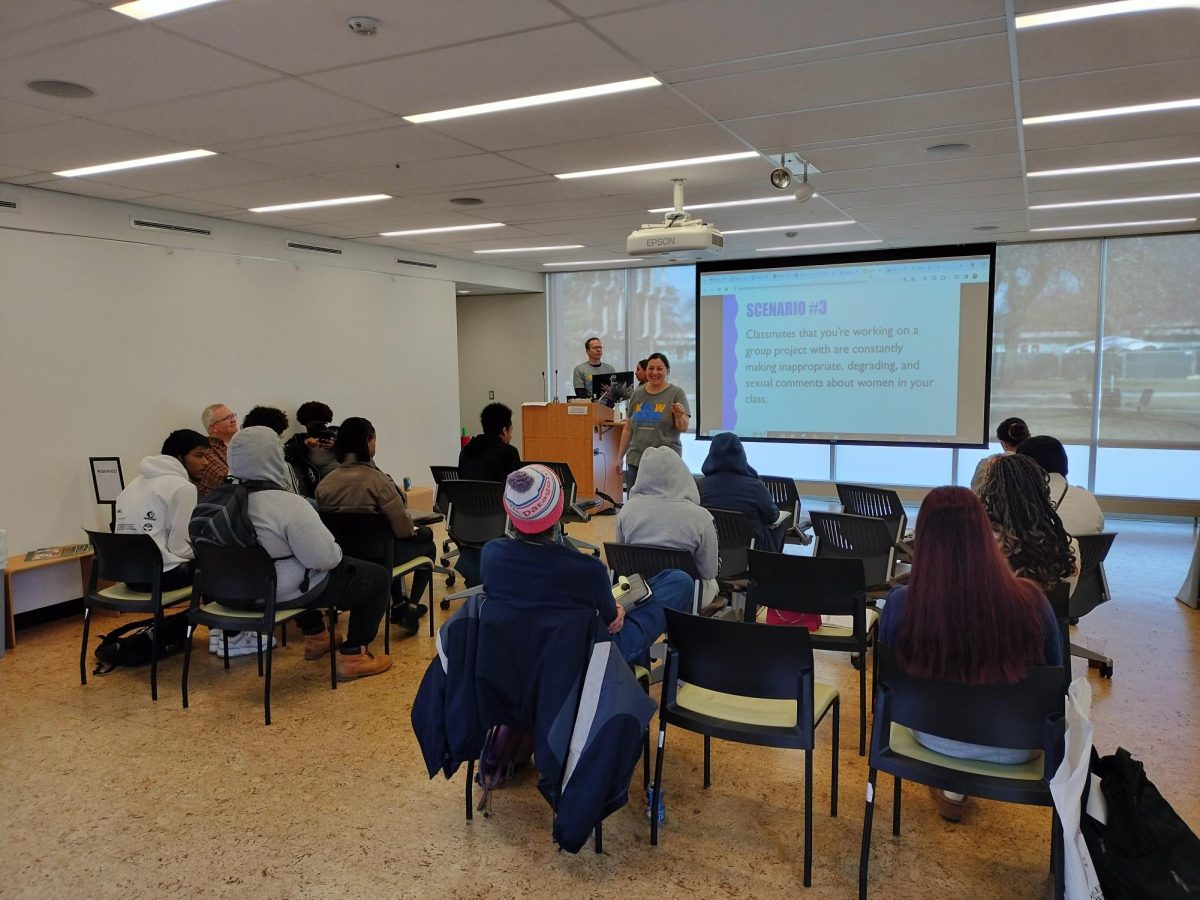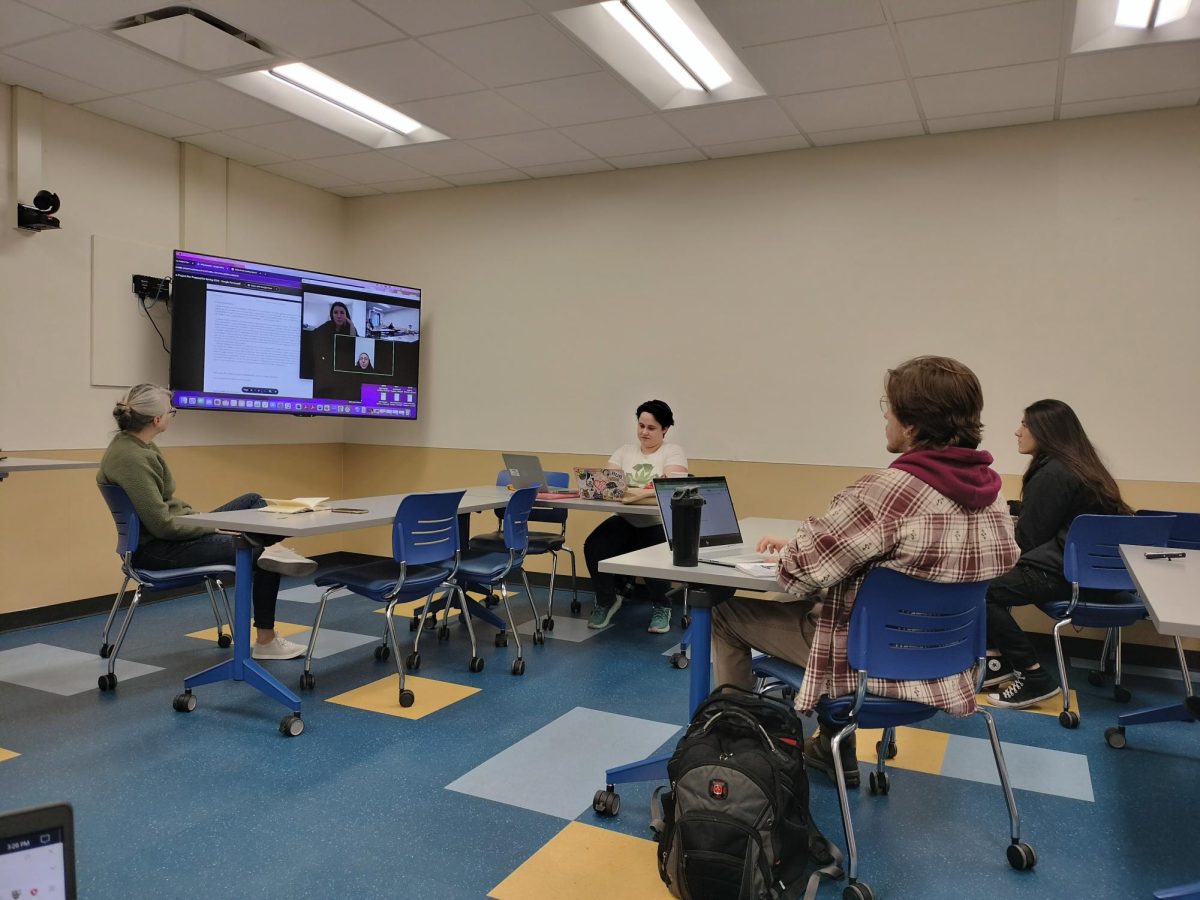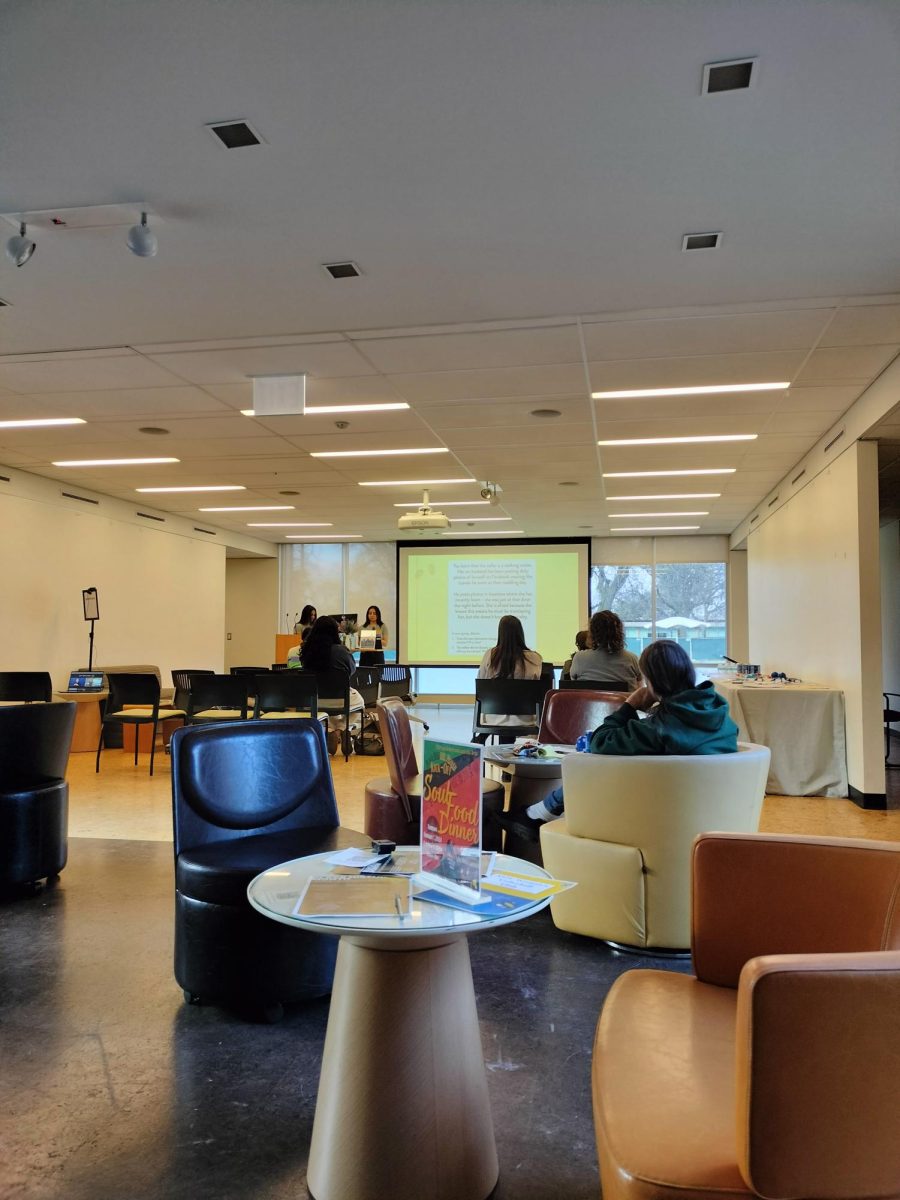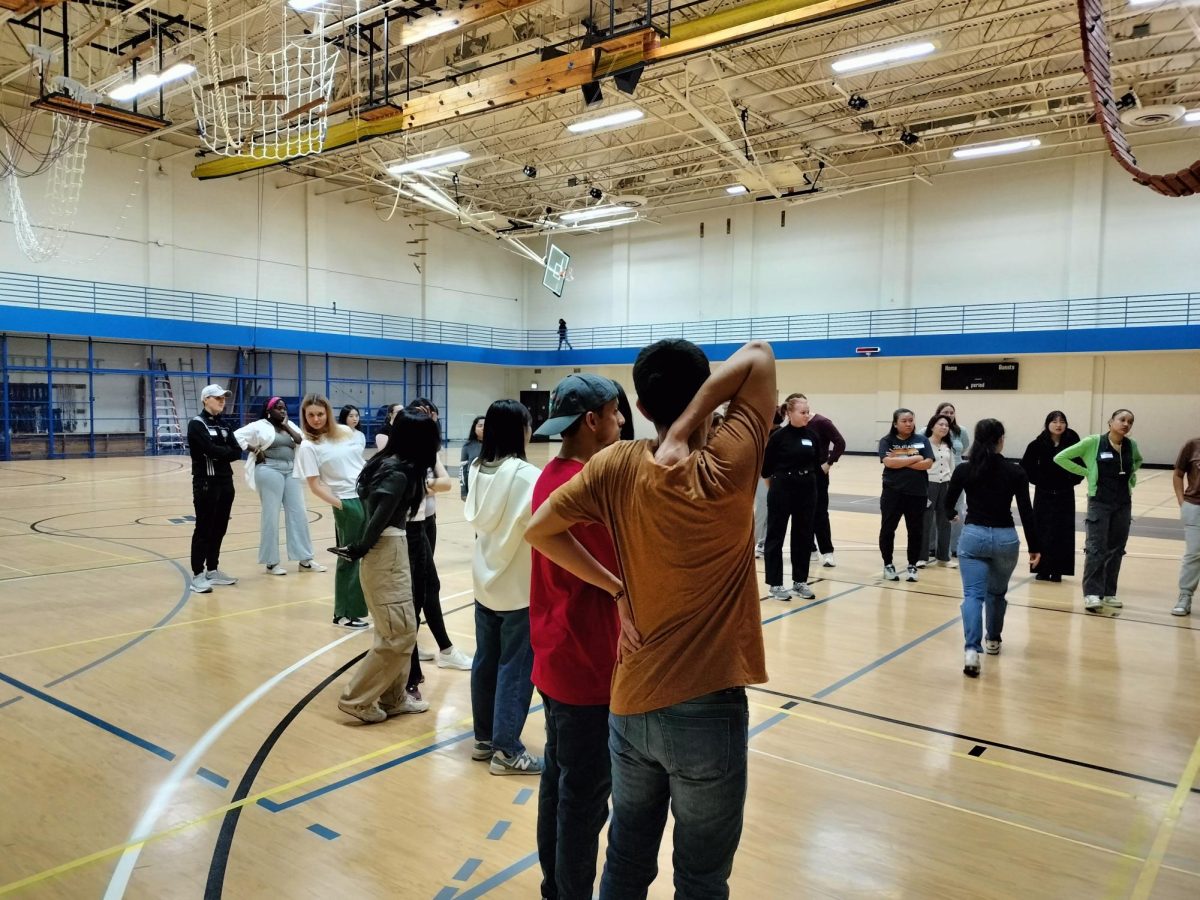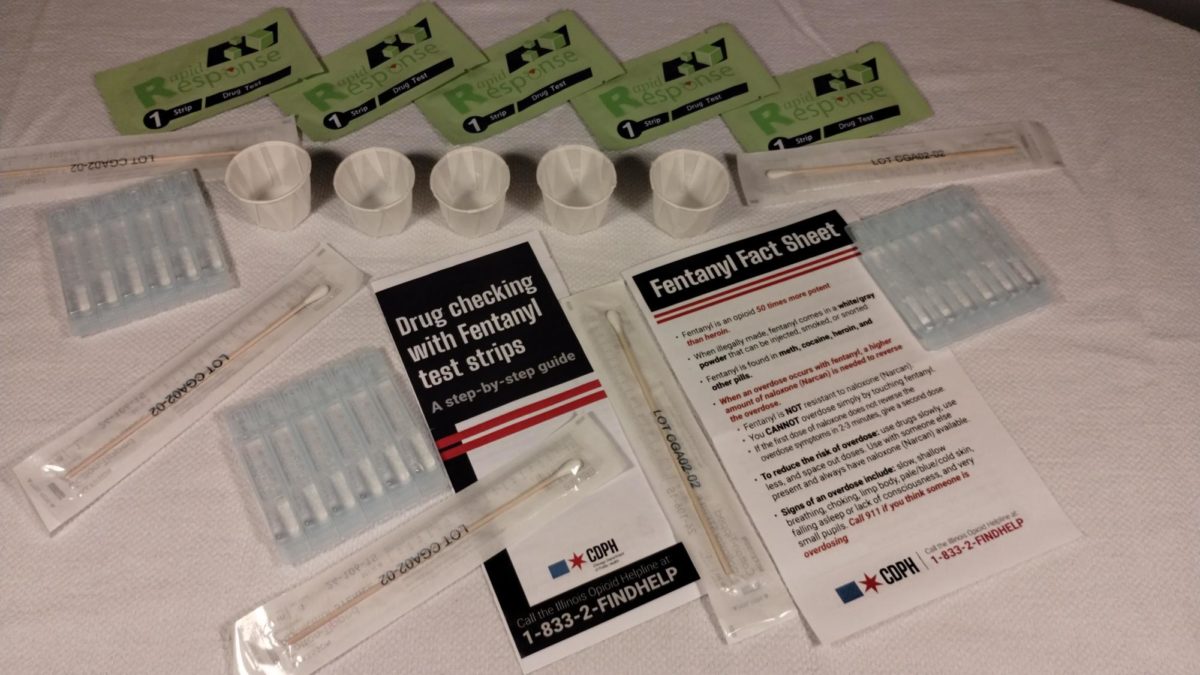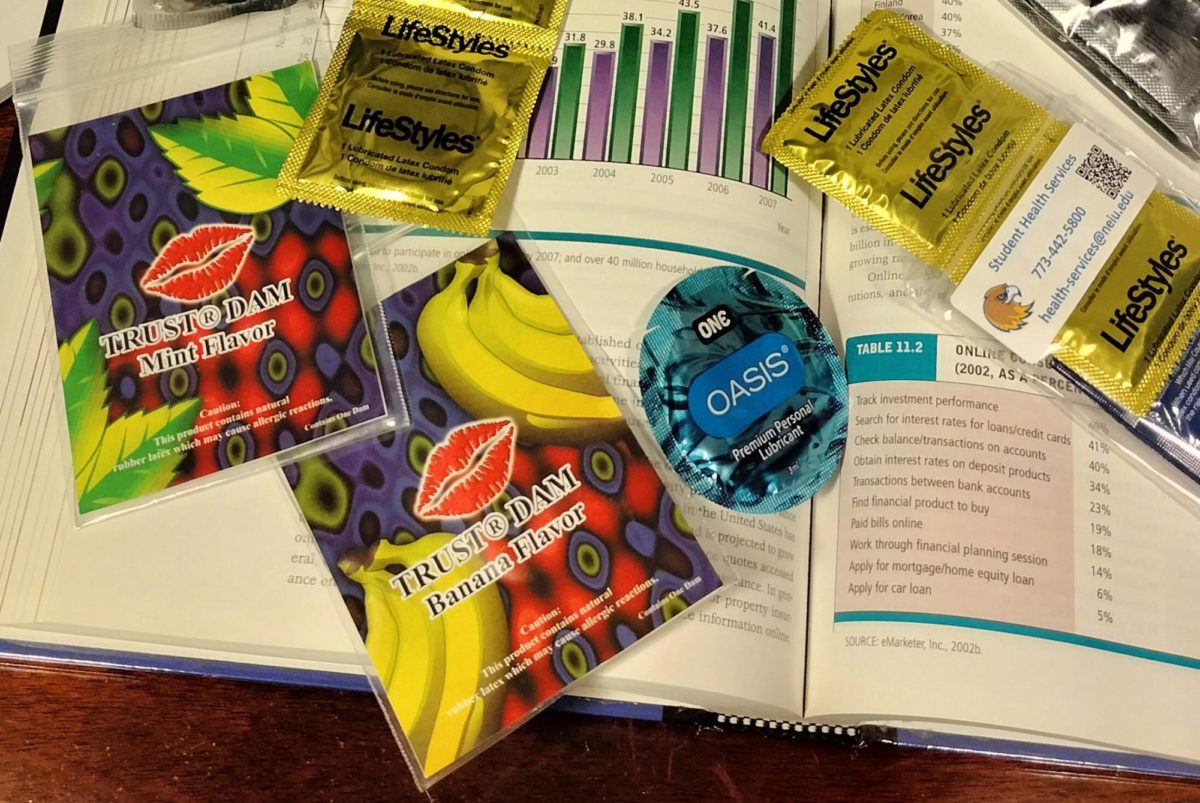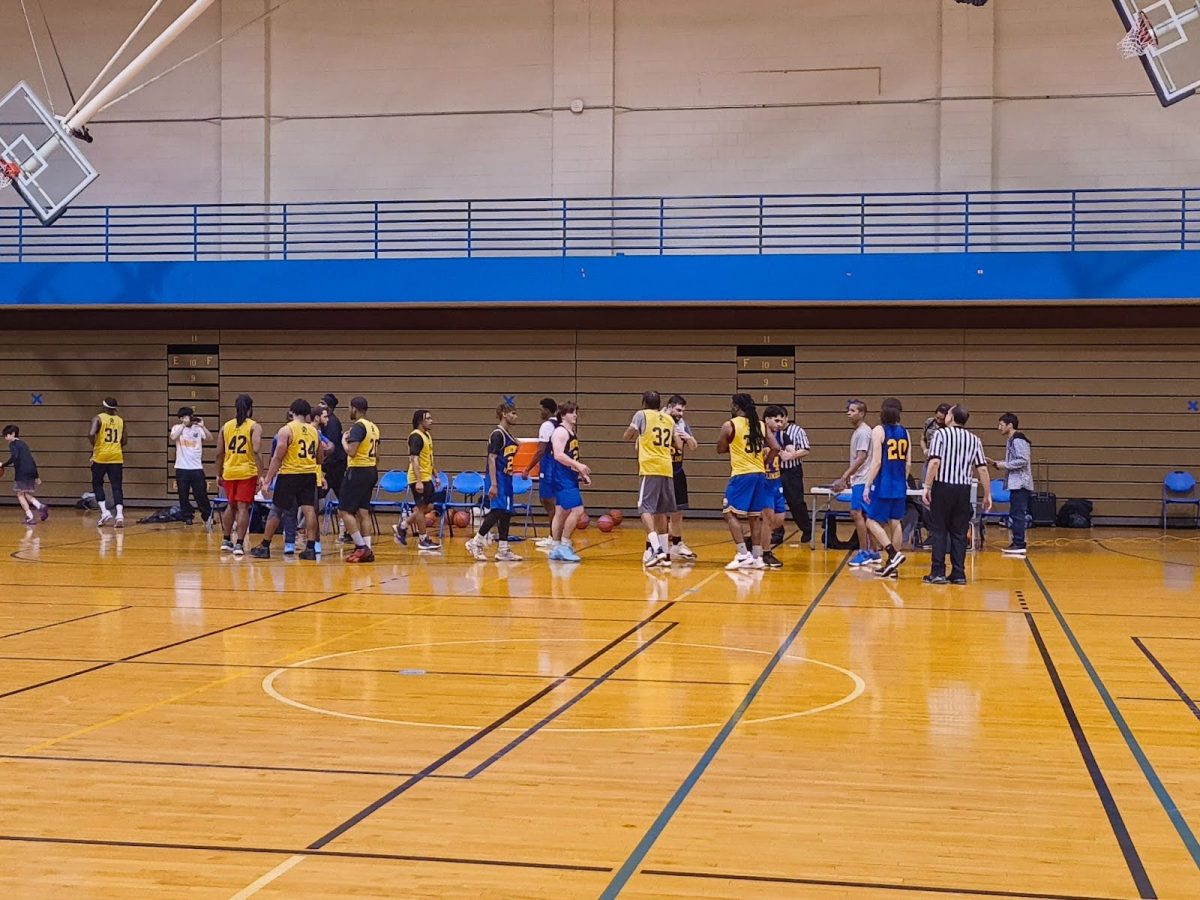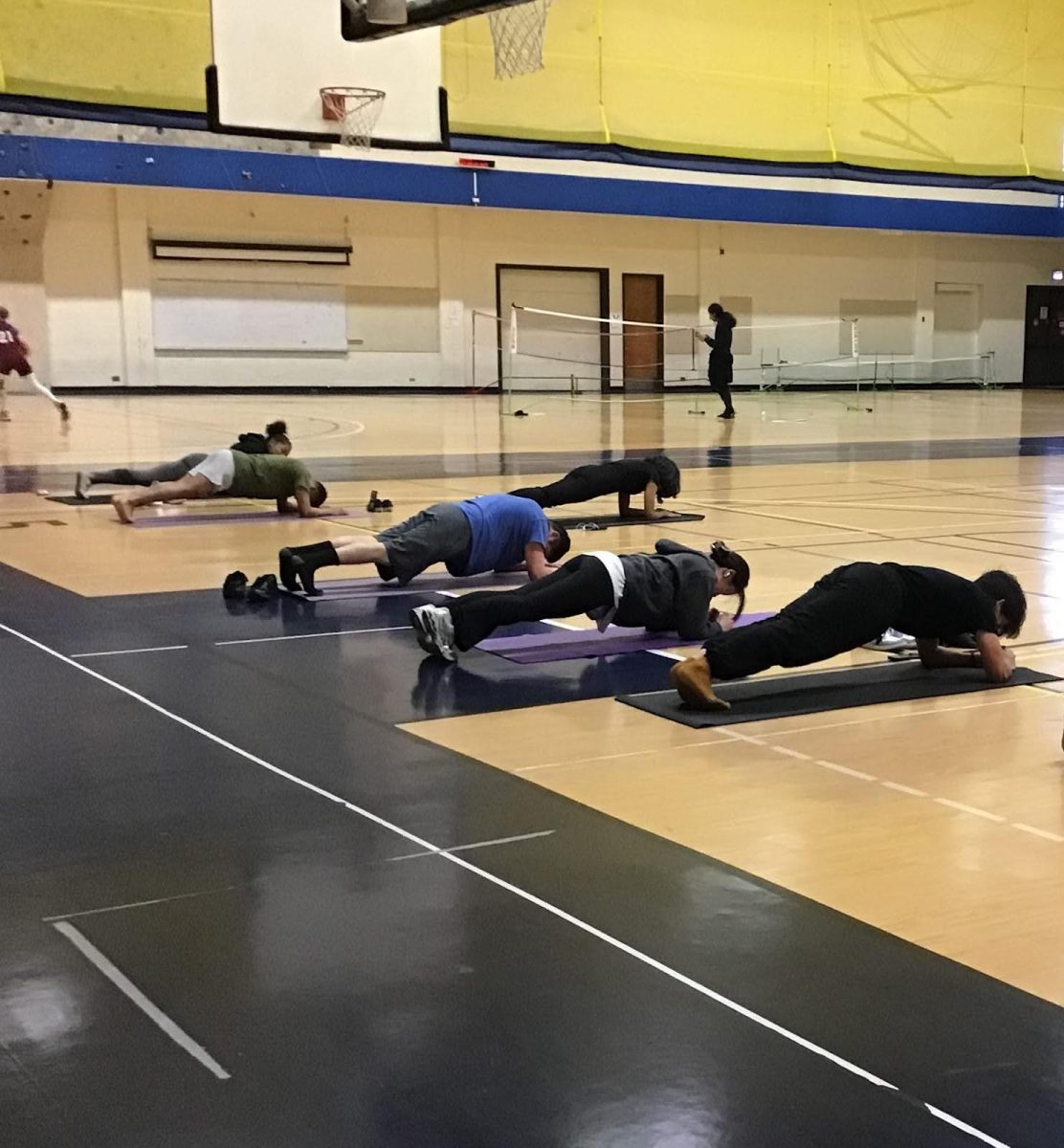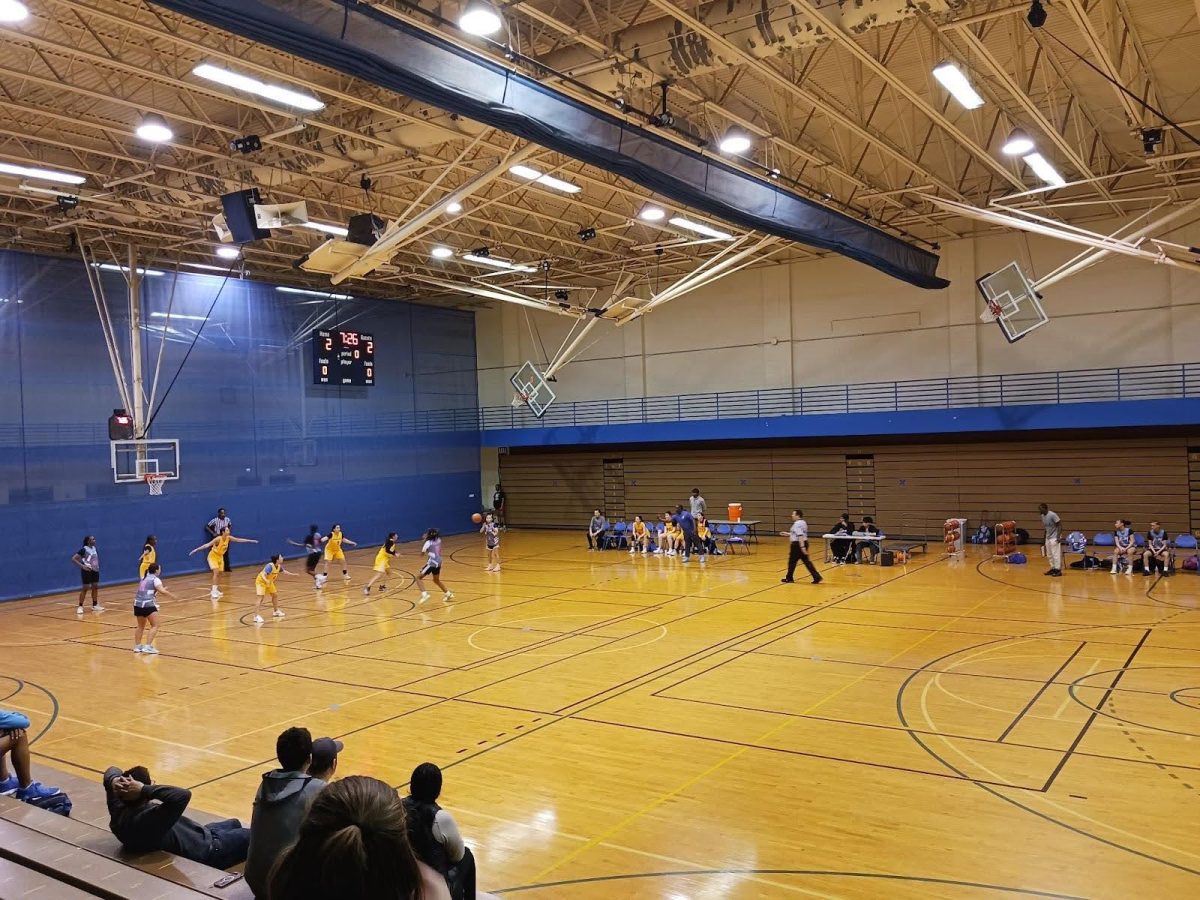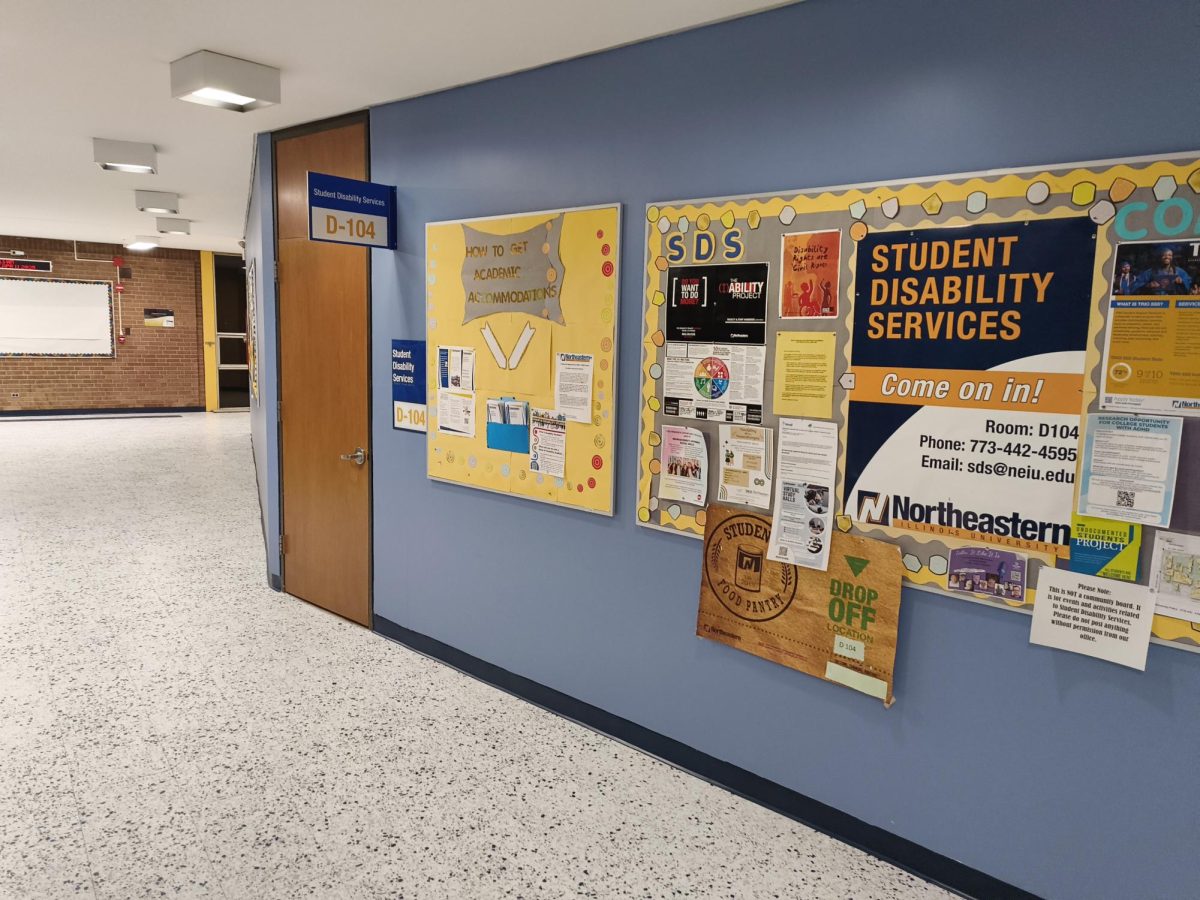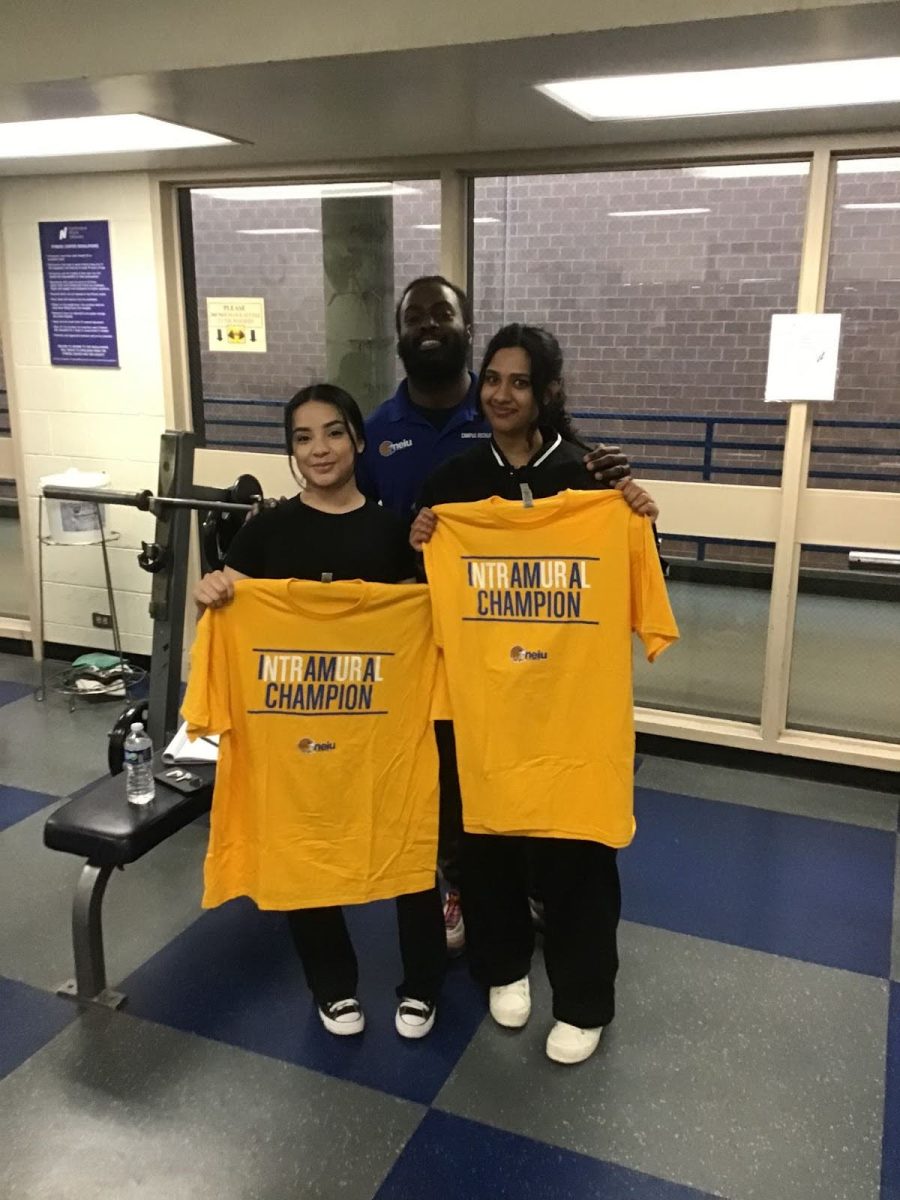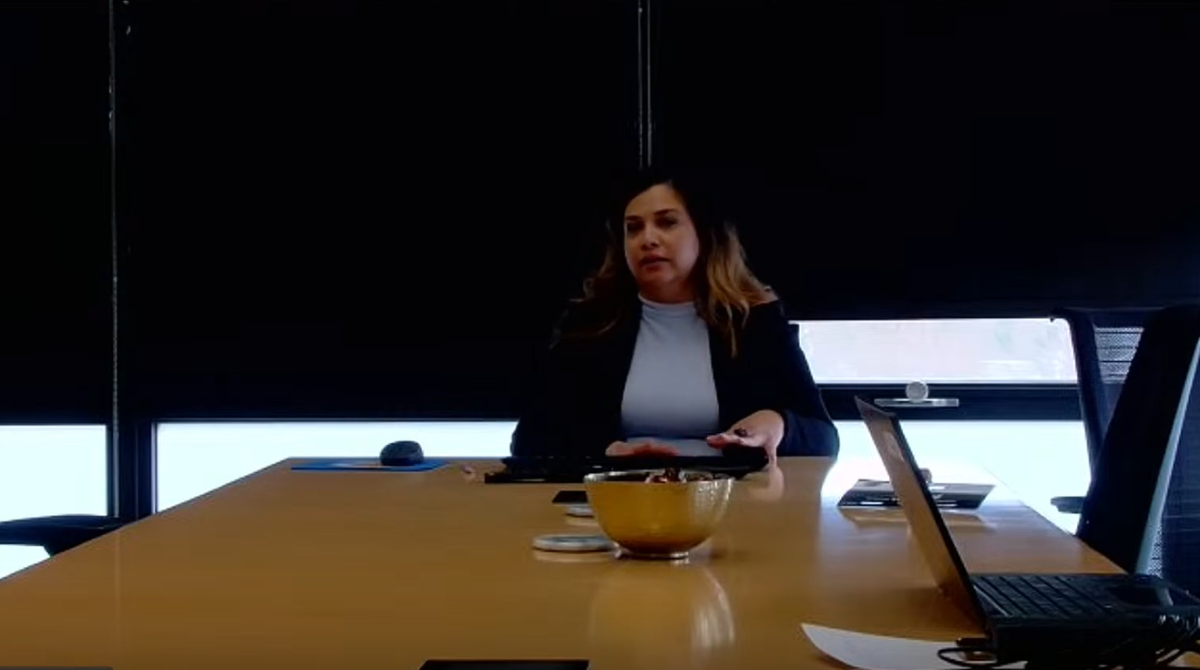On Tuesday, Sept. 26, 2023, NEIU hosted an event to address the opioid epidemic and equip the university community with the tools to potentially save lives. In a partnership between Peer Services and NEIU’s Student Health Services, the event featured a Narcan training session and an in-depth discussion on opioid harm reduction. The goal was to provide essential knowledge and resources to combat the opioid crisis.
“What it comes down to is ‘knowledge is power, the more information you have, the more of an impact you can make,’” said Luana Lienhart, a Licensed Clinical Social Worker (LCSW) and staff therapist at Peer Services, “I can’t think of anyone who wouldn’t want to know how to save someone’s life if they happen to find someone who [has] overdosed.”
Fentanyl is a synthetic narcotic drug, and it is far more potent than other narcotic analgesics. According to Lienhart, a teenager in Evanston in 2022 purchased what they believed to be THC vape from a TikTok content creator. The vape was laced with fentanyl, and the teenager overdosed in the bathroom.
“The more that people are aware of the dangers, the more that folks can at least make an informed decision,” Lienhart said. “Even if they know that they’re taking a risk, at least they’ve assessed those risks and can make that choice for themselves.”
Naloxone is an FDA-approved drug for opiate overdose, and one of its trademarked names is Narcan. When any substance is laced with fentanyl, the person will die unless immediately treated with two or more doses of Naloxone. The danger of fentanyl stems from the fact that it dramatically depresses the respiratory system. If a drug or substance was not obtained via a licensed dispensary, pharmacy or physician, there is the risk of it being potentially laced with fentanyl or other contaminants.
Naloxone does not require prescriptions in Illinois and is covered by most health insurance companies. It can be administered in several routes such as an intranasal spray or an intramuscular, subcutaneous or intravenous injection. The intranasal spray would be the most accessible and easy for most people to administer the emergency dose. Doses of Narcan are available in the health vending machine in the Student Union, adjacent to accessible ramps.
“Wherever there are human beings, there will be people who use opiates,” said Lienhart. “So I will go anywhere, anytime, however long it takes no matter how large or small the size [of the audience] is, I want as many folks as possible to be empowered to know with this information.”
The most common signs of overdose are blue body parts like lips and fingers, shallow or inhibited breath, limp body, slow or lack of pulse, snoring or gurgling noises and/or unresponsiveness to painful stimulation. The sternal rub is the most common test for responsiveness by rubbing knuckles up and down the breastbone with significant pressure. The test is meant to be painful but will not cause harm. Police officers commonly perform this test when an opioid emergency is suspected.
If a suspected opioid overdose occurs, call 9-1-1 immediately. Administer the first dose of Naloxone, wait two minutes (attempt rescue breaths during this time if CPR-trained), then administer the second dose of Naloxone. If the person wakes up, stand back as they may become angry or violent. If unresponsiveness is due to other reasons, naloxone will not harm them. Good Samaritan Laws in Illinois protect individuals if something goes wrong while helping an opioid overdose victim.
“Talking about things reduces the negative stigma, and if we can normalize seeking help,” said Lienhart, “We can normalize even other ways of coping with life’s stressors, so that you don’t need to reach for that drug or for that substance to manage [life’s circumstances].” Lienhart’s sentiment extends to not only negative stigmas about substance abuse treatment but also other health-related capacities, such as mental health and contraceptive use.
“I’m so grateful for everything that the university is doing to bring this awareness,” said Lienhart, “I wish more organizations, especially universities, were as open to having these difficult conversations because they are difficult, but they are necessary.”
By learning how to administer Narcan, attendees gained insights into potentially life-saving interventions. In addition to the practical training, participants were educated on the risks associated with counterfeit opioids, a pervasive issue in today’s society. For instance, the magnified images between authentic oxycodone and fake oxycodone looked extremely similar to the untrained eye, but the actual size of the tablets would be very challenging to differentiate.
Lienhart gives Narcan training seminars to public libraries, places of worship and police departments. Lienhart can be contacted for more harm reduction seminars in the Chicagoland area at llienhart@peerservices.org.

